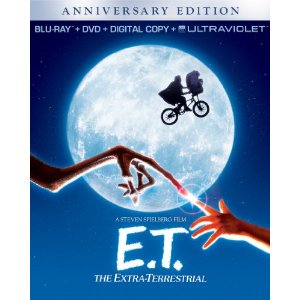Lili
Posted on December 13, 2002 at 5:17 am
Plot: Lili (Leslie Caron), a French orphan, is dazzled by a handsome carnival magician named Marcus (Jean Pierre Aumont) when he speaks kindly to her, and she follows him back to the carnival. She gets a job as a waitress there, but is fired for spending too much time watching his act. Lonely and sad, she thinks of suicide, but a puppet called Carrot Top calls out to her kindly, and she starts to talk to him and the other puppets: Golo, the simple giant who is shy with girls; Margurite, the vain beauty; and Renaldo, the sly, crafty fox.
Paul (Mel Ferrar) the puppeteer, a bitter, angry man, offers her a job in the act. His assistant, Yacov (Kurt Kaszner) explains that he had once been a great dancer but was wounded in the war. Paul, drunk, refers to himself as “half man, half mountebank.”
Audiences love Lili’s conversations with the puppets because she is so sincere, and the show is very successful. She spends the money she makes on foolish games and knicknacks, and Paul angrily asks if there isn’t something she really wants. At the show, the puppets gently ask the same thing, and we see Paul’s face as he has the puppets tell Lili that what she wants is to be loved, and that he cares for her.
Marcus gets an offer from a hotel, and leaves the carnival. It turns out he was secretly married to his assistant (Zsa Zsa Gabor). When Lili runs after Marcus to give him the ring he dropped in her trailer, Paul thinks she is running after him because she loves him, and he slaps her.
Paul is offered a wonderful opportunity to take his act to Paris. When asked if Lili is a superb actress or if he is a Svengali, he says, “She’s like a little bell that gives off a pure sound no matter how you strike it, because she is in herself so good and true and pure.” When he finds that the men did not know he had been crippled, he is deeply moved. He has succeeded in transcending his disability and no longer sees himself as less than a complete man.<p.
But Lili has decided to leave. She tells Marcus, “I’ve been living in a dream like a little girl, not seeing what I didn’t want to see,” and that sometimes a person outgrows dreams like a girl outgrows her dresses.
As she leaves, Carrot Top calls her back again, and asks to go with her. As each of the puppets tells her how much they care, we see Paul speaking through them. At first very touched, she thrusts back the curtain to see Paul. All he can do is speak harshly to her about the new offer, and she thinks he has been pretending to be nice to her just to get her to stay with the show.
He tells her that the puppets are the parts of him he cannot show any other way. But she runs away. On the road, she dreams of dancing with the puppets, each one transforming itself into Paul. Understanding that all of the characters she loves are really him, she runs back to him.
Discussion: This is a charming story with a lovely theme song, simply told but with a great deal of psychological insight. Lili believes what she sees on the surface. She believes the shopkeeper who offers her a job, but it turns out that he is just making a pass at her. She believes Marcus’ easy charm and small tricks. She believes Paul is unfeeling. But that same naiveté is what makes her interaction with the puppets so endearingly believable. As she says, she always forgets that they are not real. Just as Paul can only open up through them, she only opens up to them.
Paul is attracted to Lili because she is such a contrast to him — she is direct, completely clear about her feelings. His leg is not as crippled as his heart. He has closed himself off, and yet his spirit needs to express itself; he needs to relate to people. So he does it through the puppets, and through them he has a freedom he could not otherwise have. When the act becomes successful, he can for the first time since his injury begin to develop the self-confidence he needs to be able to open himself up to a relationship without going through the puppets as his intermediaries. Questions for Kids:
· Why is it easier for Paul to say what he is thinking through the puppets?
· What does he mean when he says, “I am the puppets?”
· What does Lili mean when she says that people outgrow dreams?
· Why is it so important to Paul that the men who made him the offer didn’t know he had a limp?
Connections: The story for this movie was by Paul Gallico, who was inspired by Burr Tillstrom and his television show, “Kukla, Fran, and Ollie.” Gallico was a prolific writer who enjoyed writing in a variety of genres, and films made from his work include, “Pride of the Yankees,” “The Three Lives of Thomasina,” and “The Poseidon Adventure.”
Activities: Put on a puppet show. Let the kids try to make puppets that express different parts of themselves or behave in ways they cannot.

